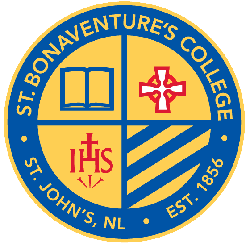Environmental Education has been a keystone foundation to the Education delivered at St. Bonaventure’s College for more than a decade. Our school community has been a daily witness to this through Mrs. Coffin and the recycling program, Ms. Pardy’s and Mrs. Prior’s field trips to “Brother Joe’s Pumpkin Patch,” Mr. Peters’ tireless work in the school garden, composting and the “Farm to School” programs, Ms. Rowsell’s seed germination activities, Mr. Parab’s focus on sustainable food practices, and the overall joy and affection on every child’s face as they play daily in our amazing out door classroom, the field. This year, we are going even further; this year we are using the concept of Eco-Literacy to help us re-define Environmental Education in our school.
To help us define eco-literacy let’s look that the origin of the words. Ecology is the study of organisms, relationships and their physical environments. Literacy is proficiency in communication. Therefore, eco-literacy is having the skill set to think holistically about ecology, while communicating our thoughts effectively. Eco-Literacy is specifically focused on our changing Ecology, on being academically aware of these changes and then developing within our school community a sense of responsibly surrounding these changes. To be eco-literate is to foster in our students and school community a responsibility to our environment, both locally and globally. Additionally, we want to be not only aware, academically/scientifically, of what is happening, but empowered to offer a response.
The term ecological literacy was first used publicly in 1986 by Paul Risser who challenged ecologists to take on the responsibility of setting up the parameters around ecological literacy. As a school community we have taken up this theme most recently in response to our Spiritual Leader, Pope Francis, as he has called us to action in a recent encyclical, ‘Laudato Si’. In the encyclical, Pope Francis focuses on the issues that are present in our ecological world, and how we as a global society are to blame for our current epidemic surrounding climate change. Pope Francis asks us to become aware of our own actions as a society, and realize that all decisions have consequences. Tom McGrath, St. Bon’s President has said, “Pope Francis is asking us to make better informed decisions as a method to decrease our impact on the world.”
The aim of Jesuit education “is a call to human excellence, to the fullest possible development of all human qualities. It is a call to critical thinking and disciplined studies, a call to develop the whole person, head and heart, intellect and feelings.” By taking up this topic in the classroom and in our every day lives, we are meeting our Jesuit mandate. Through a focus on eco-literacy our school community will gain a greater global competence and understanding surrounding climate change. Through an inter- disciplinary, approach in which we marry Science, Math, Physical Education, Religious Education, Visual Arts, Social Sciences and Literary Arts our students will be given the opportunity to explore their conscience to make enlightened decisions. Additionally, we can foster the compassionate person, one who has a better understanding of and feeling for charity and compassion for justice in our changing global environment. Finally, through this underlying theme of eco-literacy we as educators are interested in forming a student of commitment, a student who will truly reflect on the urgency of our current environmental crisis and create a sense of responsibly toward change. The General, of the Society of Jesus, Father Pedro Arrupe, S.J. said, “We realize that an ecological commitment to the reconciliation and healing of the earth, hand in hand with the commitment for social justice, are urgent needs as they affect all persons everywhere on the earth.”
Our school community has been engaged in this theme for several months, and continues to be an important element of our educational outcomes. Your children have taken on many of these issues in the classroom; for example, our Grade 7 students have been doing the “Ignation Carbon Challenge”. This is an opportunity for our students to work with other Jesuit schools across North America in understanding their own role in climate change as they reduce their own personal, carbon foot print. Additionally, our grade 9 and 10 classes have looked at the Science and social implications of climate change. The Grade 2 classes are working toward conservation efforts in our own environment, with efforts toward waste free lunch and clean up activates in our local community. Finally, our Science Fair this February will be themed around “Eco-Literacy.” These are just a few of the initiatives taken on by our amazing teachers.
We have started the conversations in our classrooms and we encourage you to continue them at home; as this is our “Common Home”, we all need to play a role in making it better.


